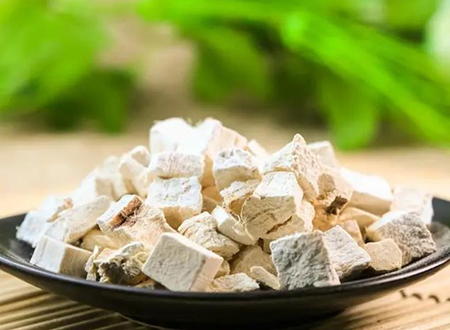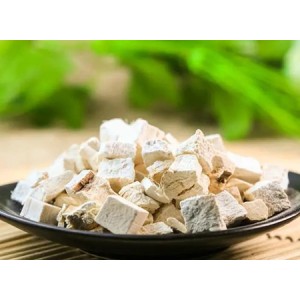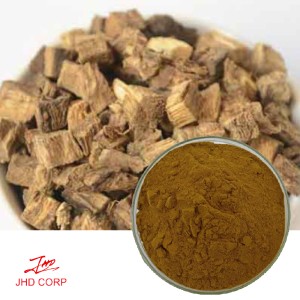Can Kudzu extract be used as a cosmetic raw material?
Kudzu extract, also known as Pueraria lobata extract, is a popular ingredient in traditional Chinese medicine. It has been used for centuries to treat a variety of ailments, including alcoholism, high blood pressure, and menopausal symptoms. In recent years, kudzu extract has gained attention in the cosmetic industry as a potential raw material. But can it really be used in cosmetics?
First, it's important to understand what kudzu extract is. It is derived from the root of the kudzu plant, which is native to Asia. The extract contains a variety of compounds, including flavonoids, saponins, and isoflavones. These compounds have been shown to have antioxidant, anti-inflammatory, and anti-aging properties.
One of the main benefits of using kudzu extract in cosmetics is its ability to improve skin elasticity. Studies have shown that the isoflavones in kudzu extract can increase collagen production and improve skin firmness. This makes it a popular ingredient in anti-aging products.

Kudzu extract flavones 40% also has moisturizing properties. It can help to hydrate the skin and prevent moisture loss, which is important for maintaining healthy skin. Additionally, the flavonoids in kudzu extract have been shown to have a brightening effect on the skin, making it a popular ingredient in skin-brightening products.
Another potential benefit of using kudzu extract in cosmetics is its ability to soothe irritated skin. The anti-inflammatory properties of kudzu extract make it a good choice for products designed to calm redness and irritation.
Despite these potential benefits, there are some concerns about using kudzu extract in cosmetics. One concern is that it may cause allergic reactions in some people. Additionally, there is limited research on the long-term effects of using kudzu extract in cosmetics.
Overall, kudzu extract shows promise as a cosmetic raw material. Its ability to improve skin elasticity, moisturize the skin, and soothe irritation makes it a popular choice for many cosmetic companies. However, more research is needed to fully understand its potential benefits and risks.















